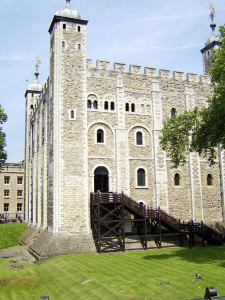![Llywelyn Fawr depicted in stained glass at St Mary's Church in Trefriw Source:By Llywelyn2000 (Own work) [CC BY-SA 4.0 (http://creativecommons.org/licenses/by-sa/4.0)], via Wikimedia Commons](http://kristiedean.com/wp-content/uploads/2015/04/Ffenestr_liwr_Tywysog_Llywelyn_Fawr_Trefriw_Sir_Conwy_2014-197x300.png)
Llywelyn Fawr depicted in stained glass at St Mary’s Church in Trefriw
Source:By Llywelyn2000 (Own work) [CC BY-SA 4.0 (http://creativecommons.org/licenses/by-sa/4.0)], via Wikimedia Commons
![Map of Gwynedd By en:File:Gwynedd General Map.jpg: James Frankcom Derivative work: Patrick87 [CC BY-SA 3.0 (http://creativecommons.org/licenses/by-sa/3.0) or GFDL (http://www.gnu.org/copyleft/fdl.html)], via Wikimedia Commons](http://kristiedean.com/wp-content/uploads/2015/04/Gwynedd_General_Map.png)
Map of Gwynedd
By en:File:Gwynedd General Map.jpg: James Frankcom Derivative work: Patrick87 [CC BY-SA 3.0 (http://creativecommons.org/licenses/by-sa/3.0) or GFDL (http://www.gnu.org/copyleft/fdl.html)], via Wikimedia Commons
Gruffudd and Dafydd
Dafydd had imprisoned Gruffudd and his eldest son at Criccieth Castle. After excommunicating Dafydd, the bishop of Bangor interceded for Gruffudd with Henry III. Gruffudd’s wife, Senena, worked tirelessly for her husband and son to be released. The marcher lords also concurred that Gruffudd should be released, likely so he could stir up trouble for Dafydd.
Henry invaded Wales and gained custody of Gruffudd and his son, Owain. However, instead of releasing them, he imprisoned them in England. His worry was that Gruffudd would be able to gain support from the Welsh. Gruffudd was imprisoned in the White Tower. He was treated favorably and his wife was allowed to visit him. Legend says that he managed to gain the cooperation of his captors in order to try to escape. He did manage to attempt an escape on St David’s Day, 1 March, 1244. He took his linens and fashioned a rope. Unfortunately his years of captivity had transformed his physique and he had become heavy. The rope broke, and Gruffudd plummeted to the ground below, dying in his attempt at escape.
Soon afterward, his second son, Llywelyn ap Gruffudd, joined forces with his uncle Dafydd in a war with Henry III. In 1246, Dafydd died without an heir, and Llywelyn became a driving force in Wales. He married Eleanor de Montfort, who died giving birth to a daughter, Gwenllian in June 1282. Llywelyn was killed in battle soon afterwards. Gwenllian was placed in the convent of Sempringham, spending her life as a nun.
Sources:
A. D. Carr, ‘Llywelyn ab Iorwerth (c.1173–1240)’, Oxford Dictionary of National Biography, Oxford University Press, 2004 [http://www.oxforddnb.com/view/article/16874, accessed 4 April 2015]
Davies, John. A History of Wales.(1990, rep 1993)
Evans, Gwynfor. Wales: A History (1974, rep 1976)
Kate Norgate, ‘Eleanor (c.1258–1282)’, rev. Marios Costambeys, Oxford Dictionary of National Biography, Oxford University Press, 2004; online edn, May 2007 [http://www.oxforddnb.com/view/article/19046, accessed 4 April 2015]
J. B. Smith, ‘Llywelyn ap Gruffudd (d. 1282)’, Oxford Dictionary of National Biography, Oxford University Press, 2004; online edn, Jan 2008 [http://www.oxforddnb.com/view/article/16875, accessed 4 April 2015]
T. F. Tout, ‘Gruffudd ap Llywelyn (d. 1244)’, rev. A. D. Carr, Oxford Dictionary of National Biography, Oxford University Press, 2004 [http://www.oxforddnb.com/view/article/11696, accessed 3 April 2015]
